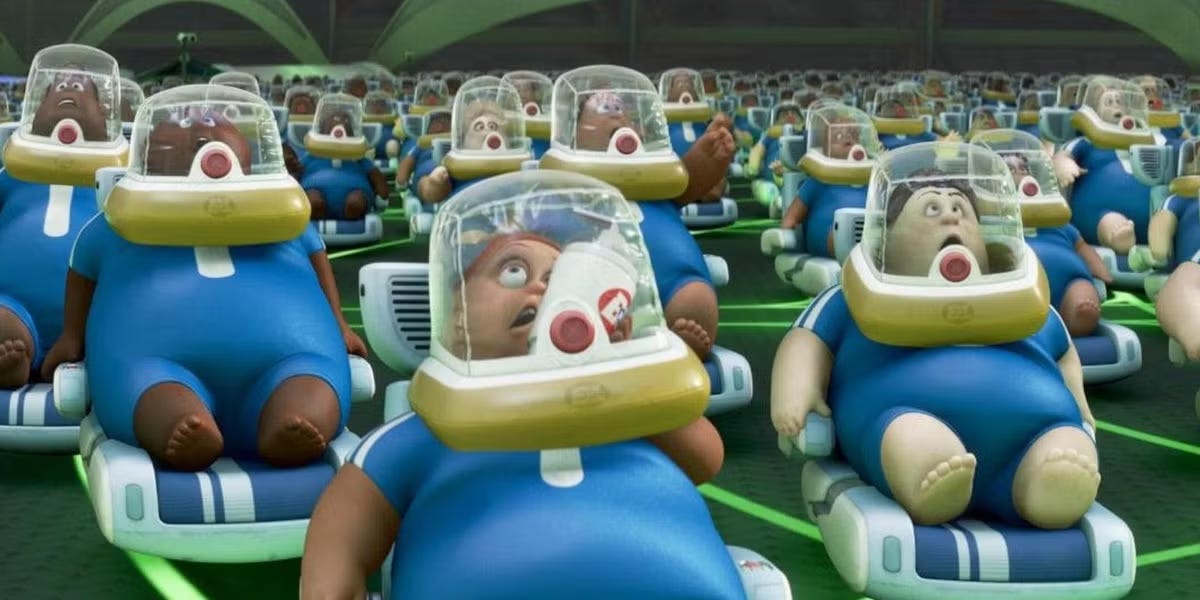In his own way, Goliath was blessed.
As a warrior approaching 10 feet in height, Goliath was in the right profession. And as far as we know, Goliath didn’t have any major injuries since the Bible doesn’t mention a missing finger or a misshapen ear. For an ancient warrior, Goliath had it pretty good.
In the story of Goliath and his rival David, the great equalizer between the two men was God’s favor, but in the broader scope of human history, the great equalizer has been technology. By the 19th century, Davids were killing Goliaths all the time on the battlefield. Physical size, musculature, and athleticism largely ceased to matter in war. Guns, at their core, are egalitarian.
Technology in general is a flattener, an equalizer. Growing up, we all learned about the Luddites, Englishmen resistant to change and unable to stave off the mechanical loom. Given that the Luddites have been relegated to the dictionary while machines have long since taken their place in the factory, the history lesson is clear - adapt or die.
With all the AI buzz from the past couple of years, I’ve had a lot more sympathy for the Goliaths and the Luddites of the past. It’s not that my 9-5 is particularly prone to AI automation - in my mind, just about every job with a computer is.
AI is essentially the genie in the lamp for the virtual world. In One Thousand and One Nights, after Aladdin discovers the lamp, he ends up marrying the princess, slaying the evil sorcerer, and ascending to the throne. But how would the story have ended if the sorcerer also had his own genie lamp? And what if everyone else in the story had one too?
We’re not that far off from genies being universally accessible. In plain English, you can ask same.new to build you a website. With a click of a button, you can use creatify to generate a production-quality video.
I’ve joked with my coworkers about starting a second career as an electrician or a locksmith, but even the physical world won’t be insulated from AI for too long. Spatial recognition is largely a solved problem given the advances in driverless cars, and hooking up OpenAI API endpoints to mechanical devices is a tractable challenge. Combine those two pieces of technology with universal basic income and all of a sudden, we’re not that far away from getting access to a personal robot that’s a chef, cleaner, and errand runner, which sounds very convenient until you realize we’ll soon be NPCs in Wall-E.
It’s not hard to imagine AI creeping its way up Maslow’s pyramid, inhaling careers and creative pursuits alike. Best-selling authors will become discerning editors, making small changes to the output that AI is generating while the best painters will merely be creative prompters, massaging their queries to get the chiaroscuro just right. Artists would be differentiated less by skill, but in how they interact with AI as it relates to their craft.
Obscure blogs, Pulitzer Prize winning books, a random Reddit thread - all of this and more would inform AI’s creative output, making someone’s art not really their art. Self-expression becomes collective-expression, except without the consultation of the collective.
I don’t think I’ll ever get over my traditional sentiments around using AI for writing, but I doubt the next generation will feel the same way. These children will be living in an era where AI has replaced the internet as the primary way of interacting with the virtual world. At that point, AI would be so ubiquitous that it would feel unnatural not to use it for writing, painting, or any other type of creative activity.
But, there is a more optimistic timeline for AI.
If we can use AI to automate away all our menial tasks, we would have more time in our day-to-day to do the important things in life - longer phone calls with parents, reading books to our children, honing our craft in whatever we’re passionate about.
And even though AI may be the better writer or painter, we would recognize that the act of creating isn’t just about the quality of the art that’s created. With this awareness, we would continue to sing new songs and write new stories, so we can uncover the secrets stirring beneath our subconscious - insecurities hidden away or memories long eroded.
In this world, AI doesn’t snake its way up Maslow’s pyramid, but lifts us above it.



Great post! I like your comparison of AI to a personal genie. It definitely has that feel. But is it [insert name of monster] in disguise?
Personally, I think we should bring back cuneiform. It’s been all downhill since the Phoenician script.